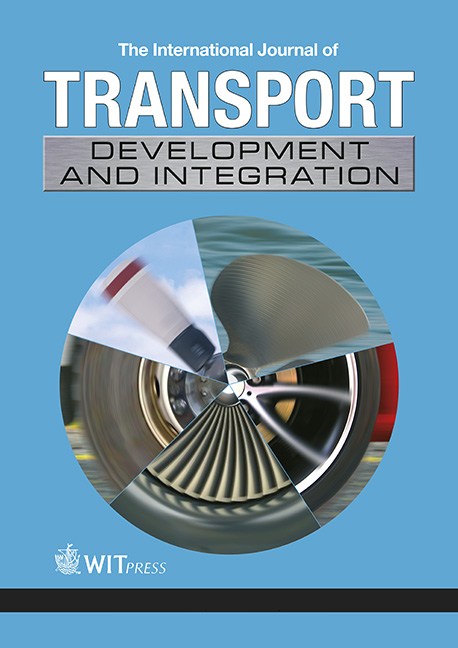Train timetable rescheduling generation based on vehicle type and train route combinations
Price
Free (open access)
Volume
Volume 1 (2017), Issue 3
Pages
10
Page Range
403 - 413
Paper DOI
10.2495/TDI-V1-N3-403-413
Copyright
WIT Press
Author(s)
T. Katori & T. Izumi
Abstract
Train rescheduling means a transient situation to correct a train diagram in a suspended state due to traffic accidents or disasters. Automatic (or half manual) rescheduling has been studied, and such previous research has shown promising results.
In this paper, we describe a train timetable rescheduling method. In Japanese urban areas, some private companies operate on each other’s tracks. If vehicle types have limitations due to ground facilities or company rules, the vehicle has to be operated under these limitations even when running on a rescheduled timetable. Even if the ground facilities of different companies have uniform conditions, local and rapid trains must be operated in a distinct manner.
Therefore, we suggest a rescheduling method. With this method, each vehicle type and its vehicle routes based on the track layout are registered, and rescheduling diagrams are composed with the route combinations.
Important conditions to decide the combinations are vehicle location at the operation resumption time and the introduction of same-type vehicles at an originally unscheduled timing. We compare the traffic effects for some combinations of the latter situation where originally unscheduled same-type vehicles are introduced for rescheduling. The evaluation values are average headway time and its standard deviation at all stations on the timetable.
We apply our rescheduling method to a theoretical line and timetable modelled on existing urban lines in Japan where trains go and come back on double tracks, and indicate the efficacy of our rescheduling method.
Keywords
route combinations, train rescheduling, vehicle type




